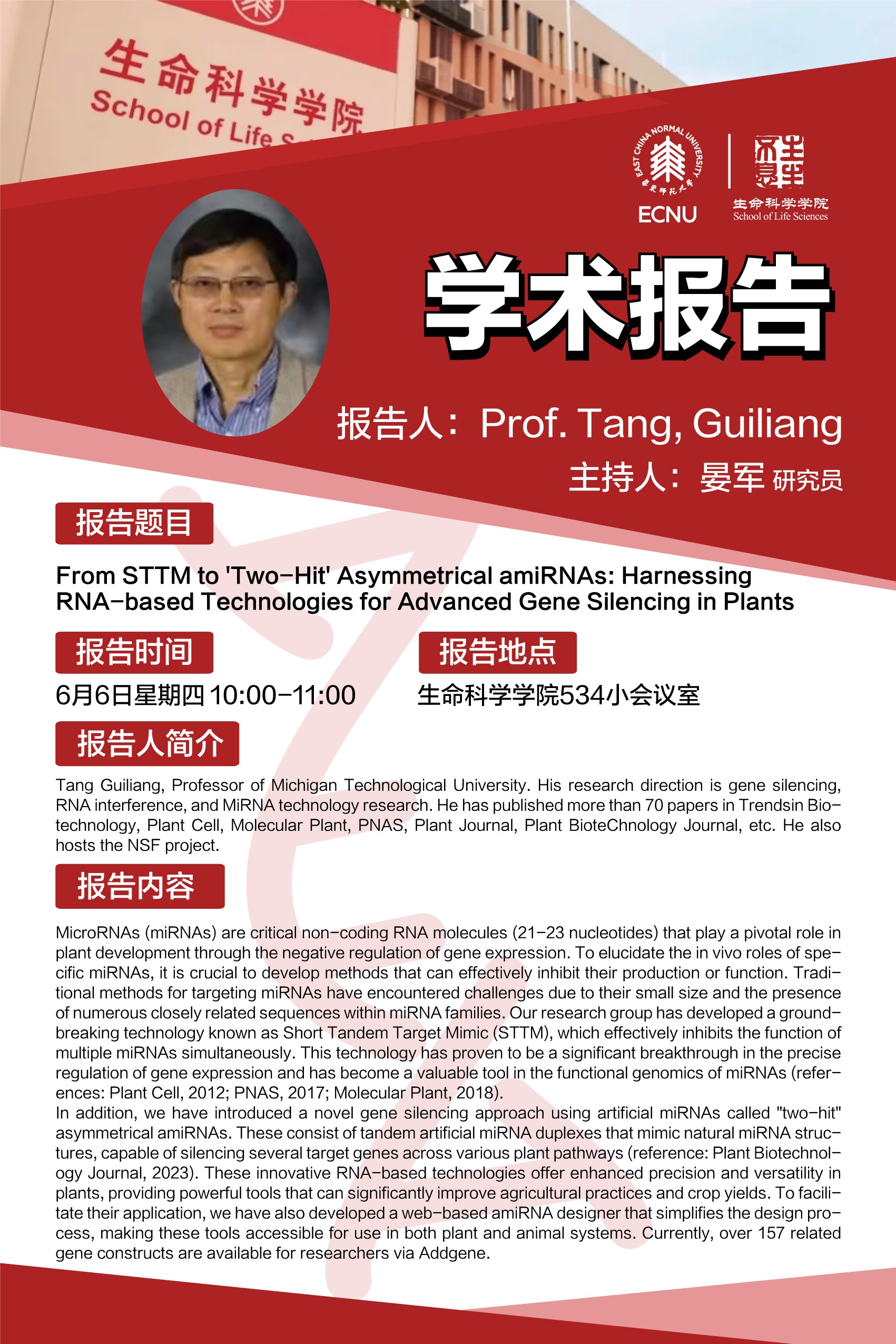



报告题目:From STTM to 'Two-Hit' Asymmetrical amiRNAs: Harnessing RNA-based Technologies for Advanced Gene Silencing in Plants
报 告 人:Prof. Tang, Guiliang
主 持 人:晏军 研究员
报告时间:2024年6月6日上午10:00-11:00
报告地点:闵行校区生命科学学院534小会议室
报告人简介:
Tang Guiliang, Professor of Michigan Technological University. His research direction is gene silencing, RNA interference, and MiRNA technology research. He has published more than 70 papers in Trendsin Biotechnology, Plant Cell, Molecular Plant, PNAS, Plant Journal, Plant BioteChnology Journal, etc. He also hosts the NSF project.
报告简介:
MicroRNAs (miRNAs) are critical non-coding RNA molecules (21-23 nucleotides) that play a pivotal role in plant development through the negative regulation of gene expression. To elucidate the in vivo roles of specific miRNAs, it is crucial to develop methods that can effectively inhibit their production or function. Traditional methods for targeting miRNAs have encountered challenges due to their small size and the presence of numerous closely related sequences within miRNA families. Our research group has developed a groundbreaking technology known as Short Tandem Target Mimic (STTM), which effectively inhibits the function of multiple miRNAs simultaneously. This technology has proven to be a significant breakthrough in the precise regulation of gene expression and has become a valuable tool in the functional genomics of miRNAs (references: Plant Cell, 2012; PNAS, 2017; Molecular Plant, 2018).
In addition, we have introduced a novel gene silencing approach using artificial miRNAs called "two-hit" asymmetrical amiRNAs. These consist of tandem artificial miRNA duplexes that mimic natural miRNA structures, capable of silencing several target genes across various plant pathways (reference: Plant Biotechnology Journal, 2023). These innovative RNA-based technologies offer enhanced precision and versatility in plants, providing powerful tools that can significantly improve agricultural practices and crop yields. To facilitate their application, we have also developed a web-based amiRNA designer that simplifies the design process, making these tools accessible for use in both plant and animal systems. Currently, over 157 related gene constructs are available for researchers via Addgene.
